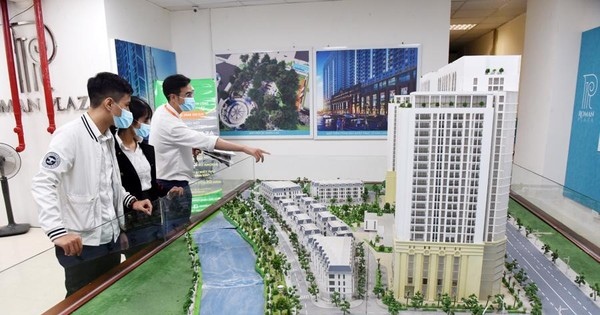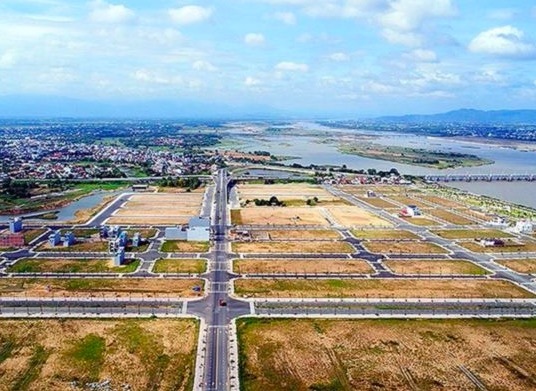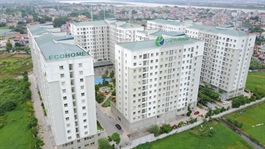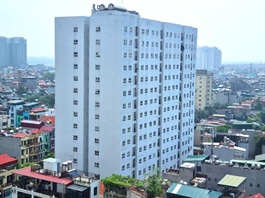Laws need amending for real estate projects
Laws need amending for real estate projects
The Ho Chi Minh City Real Estate Association (HoREA) presented four vital documents to the People's Committee of Ho Chi Minh City between 15 March and 17 July.
Illustrative photo. |
In these documents HoREA has asked for consideration in removing some bottlenecks and obstacles facing 116 real estate and commercial housing projects. The obstacles are related to many legal regulations, such as the Law on Housing 2014, Law on Real Estate Business 2014, Law on Land 2013, and Law on Construction 2014. Although the People's Committee of Ho Chi Minh City has directed relevant departments, branches, districts, as well as Thu Duc City authorities to coordinate and consider proposals to resolve many pending issues, it seems that it is still very difficult to follow up on projects without amending the Laws.
Shortcomings in Land Law
After ten years of taking effect, the 2013 Land Law still shows many shortcomings, especially in the auction of land use rights. Regulations on the auction of land use rights are stipulated in many documents of various Laws, Government decrees, decisions of the Prime Minister, joint circulars between ministries and branches, and decisions of the People's Committees of various provinces. Each document is adjusted in some aspect, but there are several inconsistencies that still remain which are causing innumerable difficulties in applying the Land law.
In my opinion, the Ministry of Natural Resources and Environment must actively cooperate closely with ministries, branches, and localities to complete the Land Law after amending it and submitting it to the Government in time for submission to the National Assembly for first consideration at the 4th session at the end of 2022, according to the orientation of Resolution 18-NQ/TW. As per the specific goal that has been determined, by 2023 it is necessary to complete the amendment of the 2013 Land Law and a number of other related laws, to ensure the uniformity and consistency between the 2013 Land Law and a number of related laws.
Specifically, it is vital to comprehensively amend the Law on Housing 2014, the Law on Real Estate Business 2014, and the Law on Urban Management 2009. Simultaneously by amending and supplementing a number of articles of many related laws such as Law on Construction 2014, Law on Bidding 2013, Law on Property Auction 2016, Law on VAT, Law on CIT, Law on Investment 2020, Civil Code 2015, will also ensure synchronization and consistency.
The 2014 Housing Law stipulates that an investor must have 100% of residential land to be recognized as an investor, while projects with 100% residential land only account for about 1% of the real estate market. This regulation has made it impossible for projects with mixed land funds or with land other than residential land in the period 2015 to 2020, leading to a shortage of project supply, shortage of supply of housing, especially affordable housing, and social housing, causing great difficulties for businesses that have spent a large amount of money to prepare the project land fund, and suffered many risks due to prolonged capital stagnation.
Obstacle for projects
Currently, the real estate market in Ho Chi Minh City is still in a state of recovery and struggling to grow once again. This market has suffered a decrease in the supply of projects as well as housing products because many real estate projects were stopped due to failure to carry out construction investment procedures or were stopped from implementation or blocked due to problems in the Laws.
The shortage of housing products, especially affordable apartments, has led to an increase in housing prices, making it more difficult for a large number of middle- and low-income people in urban areas to find affordable housing. The imbalance of supply and demand due to too little supply while the demand being too high makes house prices easy to push up, easy to become speculative, with investment surfing to manipulate the market and profiteering.
HoREA has repeatedly petitioned the People's Committee of Ho Chi Minh City to remove problems in real estate projects in the area. For example, there are projects that have been stuck for last ten years due to pending problems that have still not been resolved because of the procedures for exchanging land use levies, doing commercial businesses, or other entanglements.
Some projects have been approved by the Government for investment with the function of high-rise apartment buildings, and after the foundation and basement have been completed, then these projects were transferred to partners and have been approved by Ho Chi Minh City to receive the transfer of the entire project and the residential land red book, but still cannot be implemented because of planning problems or not being suitable for planning. The real estate market stagnates if agencies and departments do not have effective solutions to handle the current bottlenecks, and there is also high risk of bankruptcy due to financial imbalance. This way the market will decrease in size in terms of product growth, making it difficult for people who want to own real houses.
Problems in housing development projects have existed for many years but have not been resolved by Ho Chi Minh City. This is partly because the laws overlap, especially the confusing regulations on paying land use fees and investment, construction, and land procedures that have not been completely resolved. These are causing a series of real estate projects in the city to shut down. This gives many businesses a reputation of betrayal to customers. In addition, relevant departments, branches, and localities have the mindset of being afraid to sign or afraid to submit, leading to prolonged project files or being pushed from one department to another, with neither party willing to settle the problem completely.
One can only hope that in coming time, the government in Ho Chi Minh City will pay more attention to legal issues, resolve procedures for paying land use fees, and help real estate businesses by removing bottlenecks as soon as possible. When this happens, there will surely be a bustling and more transparent real estate market that can offer an abundant supply of housing to all.


























